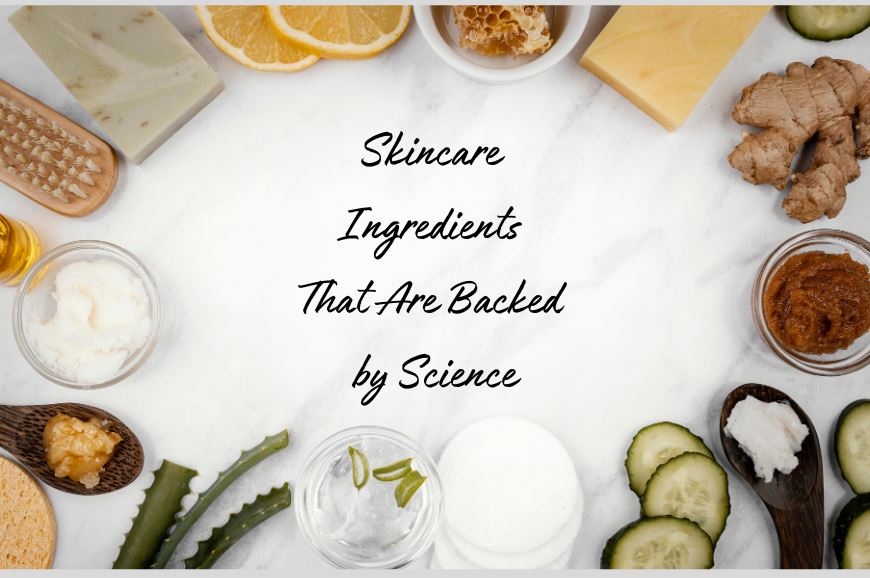
By AdityaDummy
Jun 02, 2023
Skincare Ingredients That Are Backed by Science
Skincare is a complex topic, full of promises, claims, and an ever-growing list of trendy ingredients. However, not all ingredients live up to the hype. Here, we highlight some skincare ingredients that are backed by science, providing tangible benefits for your skin.
Retinoids
Retinoids are vitamin A derivatives known for their powerful anti-aging effects. They promote cell turnover, stimulate collagen production, and have been shown to reduce the appearance of fine lines and wrinkles. The most potent form, tretinoin, is available by prescription, while milder forms like retinol are found in over-the-counter products. Retinoids can cause irritation, so it's crucial to introduce them into your routine gradually.
Hyaluronic Acid
Hyaluronic acid is a naturally occurring substance in the skin known for its stunning capacity to attract and hold onto 1000x its weight in moisture. It works by replenishing skin to enhance a healthy look and feel. As we age, our skin loses hyaluronic acid, contributing to dehydration and wrinkles. Using a product with hyaluronic acid can help restore the skin's natural moisture balance.
Niacinamide
Niacinamide, or vitamin B3, has a multitude of benefits. It helps build essential proteins in the skin, promotes skin barrier function, regulates oil production, and reduces inflammation. Studies have shown that niacinamide can improve the appearance of enlarged pores, uneven skin tone, fine lines, and dullness.
Vitamin C
Vitamin C, specifically L-ascorbic acid, is a powerful antioxidant that helps protect the skin from damage caused by free radicals and UV exposure. It also inhibits melanin production, lightening dark spots and improving skin tone. Moreover, vitamin C aids in collagen synthesis, which can help reduce the appearance of wrinkles.
Peptides
Peptides are short chains of amino acids that act as building blocks of proteins such as collagen, elastin, and keratin. These proteins are the foundations of your skin and are responsible for its texture, strength, and resilience. When applied topically, peptides have been shown to stimulate collagen production, leading to firmer, younger-looking skin.
AHAs and BHAs
Alpha-hydroxy acids (AHAs) and beta-hydroxy acids (BHAs) are chemical exfoliants that help remove dead skin cells. AHAs, like glycolic and lactic acid, are water-soluble and work on the skin's surface. They're best for normal to dry skin. BHAs, like salicylic acid, are oil-soluble and can penetrate into the pores, making them ideal for oily and acne-prone skin.
Zinc Oxide
Zinc oxide is a mineral ingredient used in sunscreens. It's a physical blocker that sits on the skin's surface and reflects harmful UV rays. Unlike some chemical sunscreens, zinc oxide doesn't degrade in the sun and offers broad-spectrum protection against both UVA and UVB rays.
Ceramides
Ceramides are lipids that make up over 50% of the skin's composition to form its natural protective barrier. They lock in moisture and protect the skin from environmental aggressors. Using skincare products with ceramides can help replenish the skin's ceramide levels, thereby reinforcing its barrier and improving its moisture retention capacity.
Conclusion
While these ingredients are backed by science and have proven benefits, remember that everyone's skin is different. What works for one person might not work for another. The concentration and formulation of the product, your skin type, and whether you have any skin conditions can all affect.